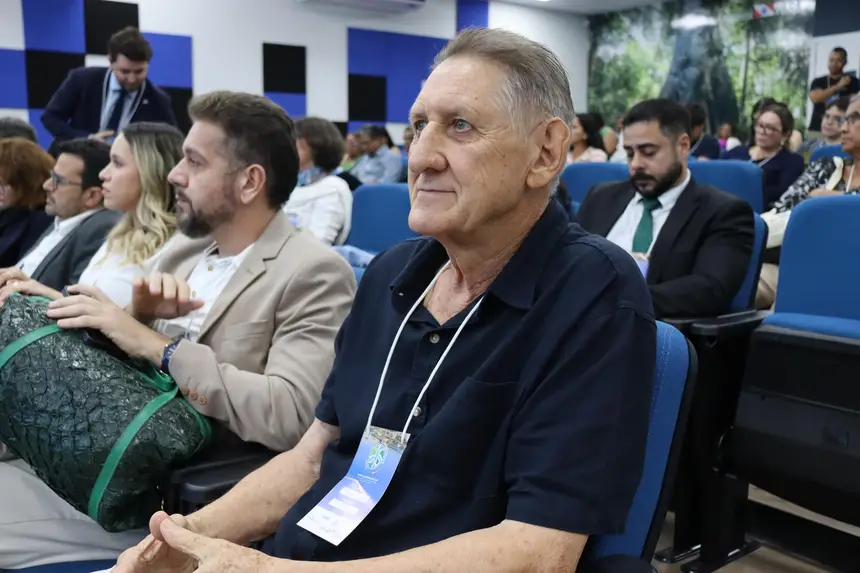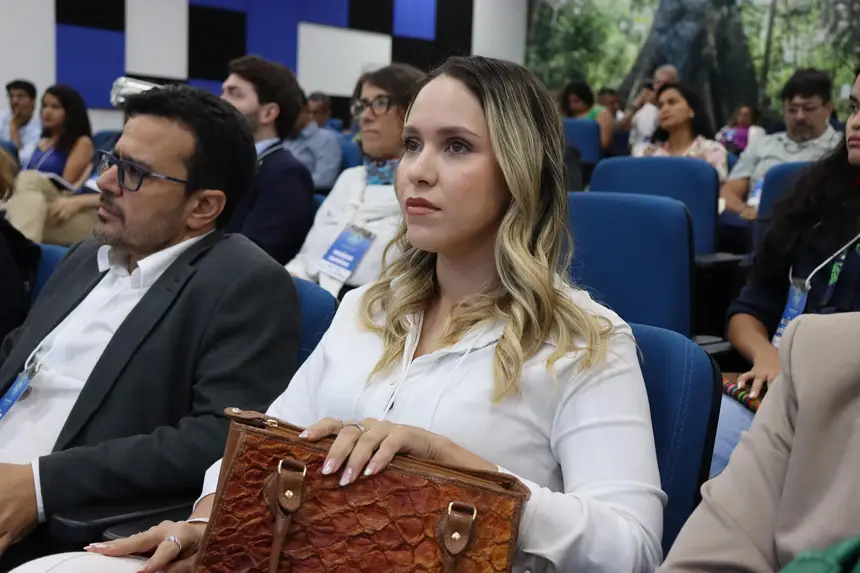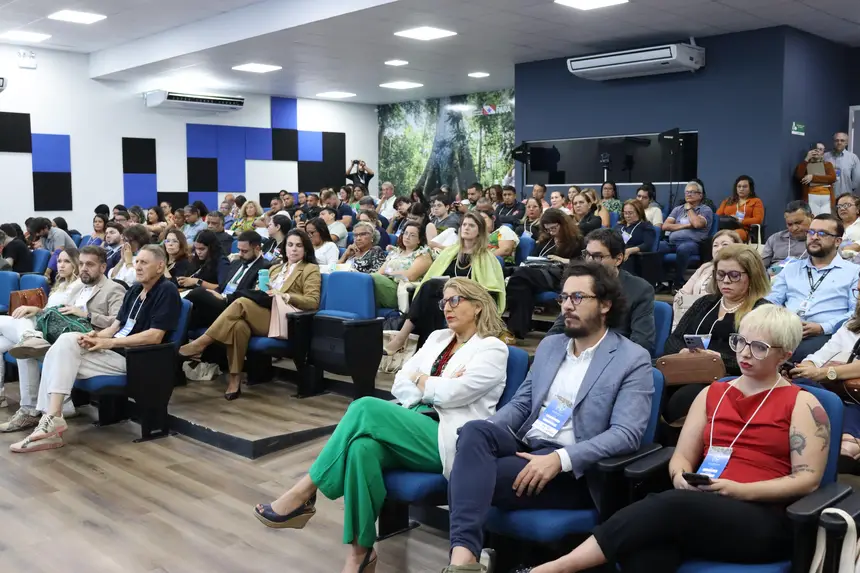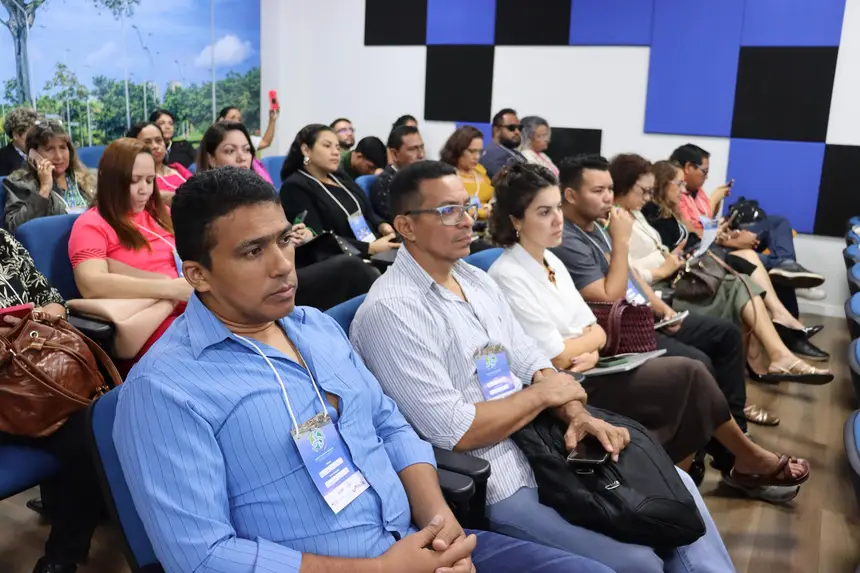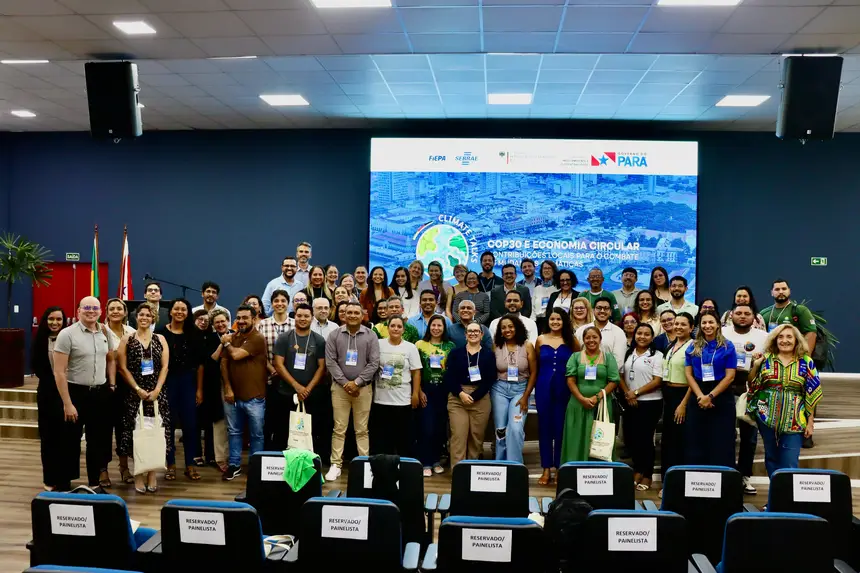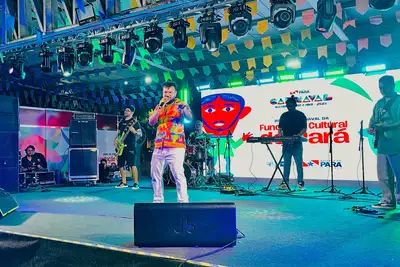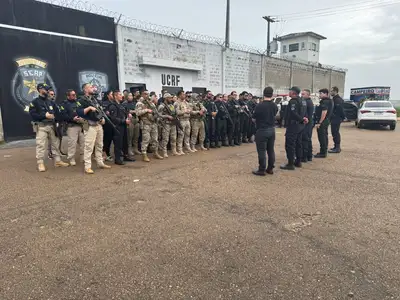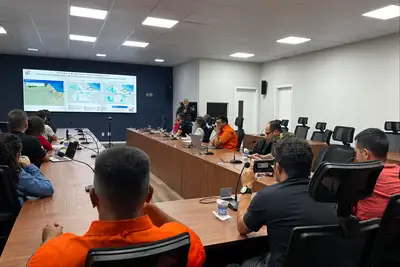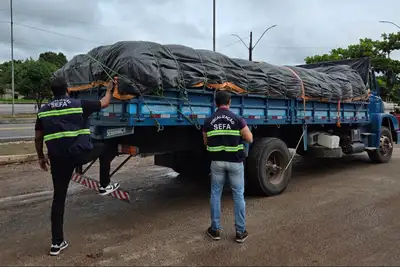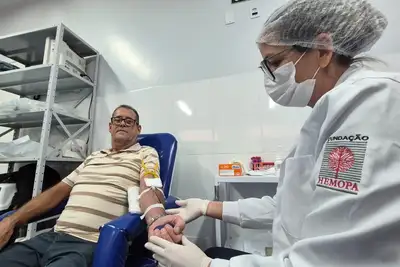Semas discusses economic transition at 'Brazil-Germany Climate Dialogues'
In addition to representatives from Brazil and Germany, the conference brought together experts, representatives from local communities, the private sector, civil society, and researchers.
Belém was the host of the first edition of Climate Talks 2025 – Brazil-Germany Climate Dialogues, an initiative of the German Embassy in Brazil, supported by the Government of Pará. The event, held on Thursday (25), aimed to foster discussion on climate change in a year of great relevance for the capital of Pará, which will host the 30th edition of the United Nations Conference on Climate Change (COP 30).
With the theme "COP 30 and Circular Economy – Local Contributions to Combat Climate Change," the event partnered with the State Secretariat for the Environment and Sustainability (Semas), with support from the Federation of Industries of Pará (Fiepa) and the Brazilian Service of Support for Micro and Small Enterprises (Sebrae). Experts, researchers, managers, and technicians from municipal environmental secretariats, local communities, the private sector, civil society collectives, authorities, and partners from both Brazil and Germany participated.
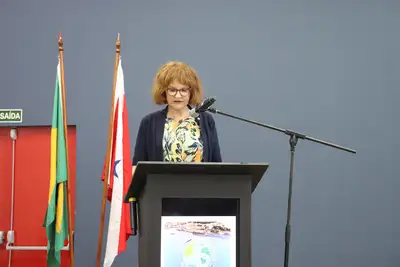
At the opening, the German Ambassador to Brazil, Bettina Cadenbach, highlighted the importance of collaboration between the two countries on climate-related issues and other environmental challenges. She emphasized that "Brazil is a key ally in climate and environmental protection issues," and that cooperation with the State of Pará is essential, especially in the areas of biodiversity preservation and ecosystem restoration.
The importance of the circular economy, the main focus of the event, was emphasized by the ambassador, who stressed the urgency of transitioning from a linear economy – which extracts, consumes, and discards resources – to a more sustainable model, such as the circular economy, which reuses, reduces waste, enables the confrontation of inequalities, and respects natural cycles.
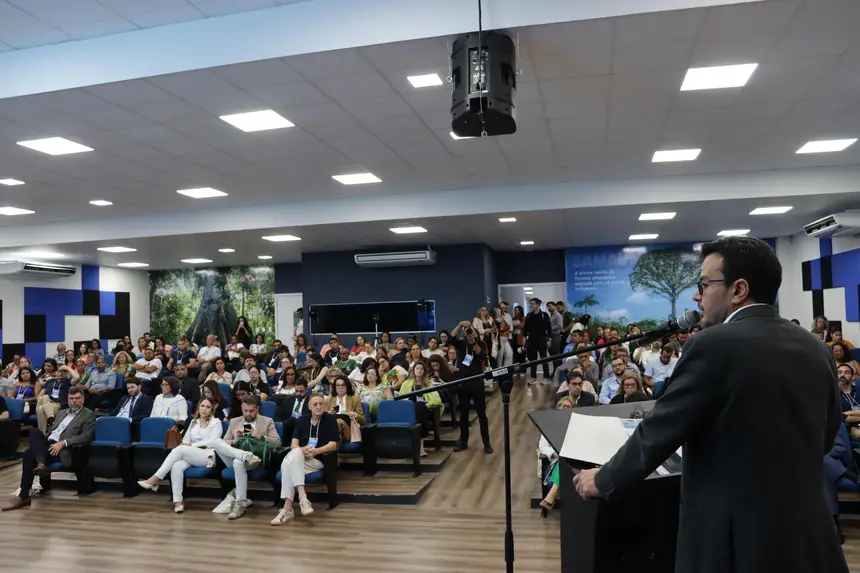
Economic Agenda - The representative of Fiepa, Deryck Pantoja Martins, and the executive director of Sebrae/PA, Rubens Magno, also highlighted the importance of collaboration between the public sector, the productive sector, and international partners. Both emphasized that sustainability should be viewed not only as an environmental agenda but also as an economic and social one.
According to them, the transition to other models, such as the circular economy, requires the leadership of industries, individuals, and small businesses. Furthermore, they advocated at the event for the sustainable valuation of forest resources, pointing out international cooperation as an important strategy to bring technical knowledge, investments, and long-term vision to Pará's position as a reference in the global climate agenda.
The deputy secretary of Semas, Rodolpho Zahluth Bastos, highlighted the crucial support of German Cooperation (GIZ) in areas such as environmental regulation and forest restoration. He emphasized the importance of the circular economy as a key strategy for the Amazon and suggested that, in addition to combating deforestation, it would be essential to expand the discussion to include waste reduction, reuse of natural resources, improvement of solid waste management, promotion of the inclusion of waste picker cooperatives, and strengthening of the local economy. "Supporting circular economy initiatives and connecting people and arrangements for articulation, innovation, and promoting the scalability of actions are fundamental to building a fairer society resilient to climate change," reiterated the deputy secretary.
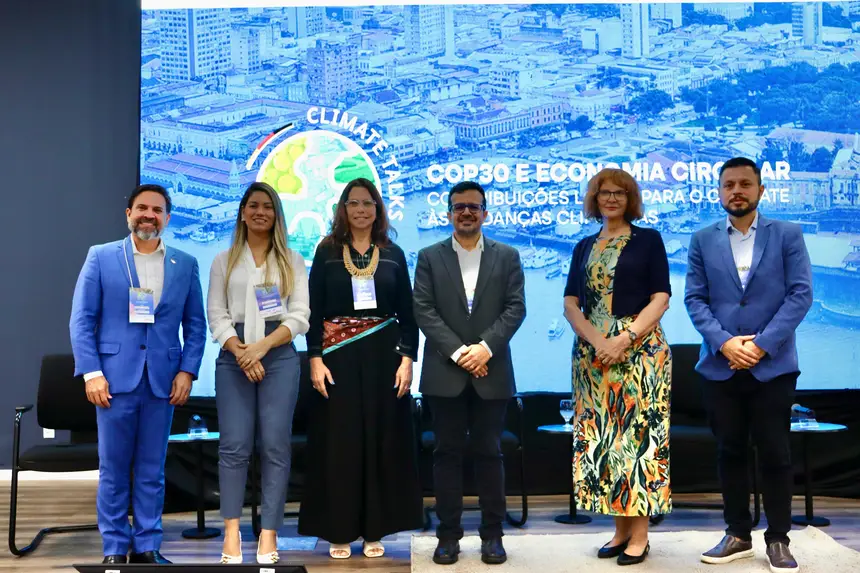
Circular Economy - The event also aimed to give visibility to local initiatives that have been studying and adopting circular economy practices for decades, such as the reuse of fish skin and scales from the Amazon for making accessories; reuse of waste for the production of biofertilizers and soap, and actions by cooperatives of rubber tappers and artisans proposing a new rubber cycle in Pará, with real opportunities for autonomy and socioeconomic inclusion of local communities.
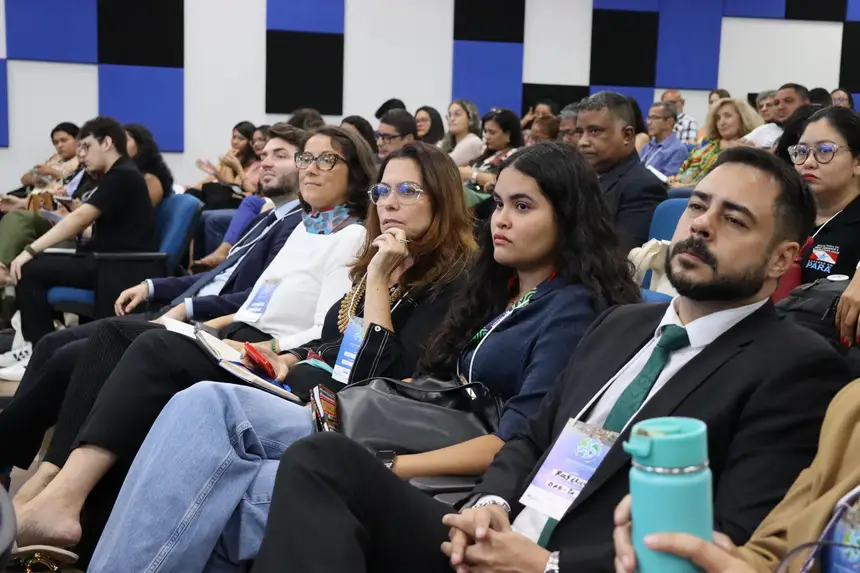
Rodolpho Zahluth Bastos highlighted the importance of creating climate support and financing channels so that these initiatives can expand, reinforcing the role of the public power, the private sector, and the international market.
"International financing, such as climate funds or bilateral partnerships, is essential to connect territories and communities in Pará that are dedicated to the conservation of the Amazon with concrete contributions to the global climate agenda, recognizing the role of innovative local initiatives and the need to strengthen the action of public power. State and municipal governments can structure more robust and lasting public policies, ensuring scale, oversight, and technical support to collectives practicing circular economy," assured the deputy secretary.
Bioeconomy - Camille Bemerguy, deputy secretary of Bioeconomy at Semas, stated in the debates that the cooperation between the governments of Germany and Pará is long-standing and has contributed to technically and financially support the long-term transformation of the economy towards decarbonization, to a state with carbon neutrality.
"In 2022, we launched the Bioeconomy Plan. At that time, emissions from the State of Pará were at 94%, linked to land and forest use. Initially, the circular economy was seen as a secondary agenda, but today, with the advancement of the climate agenda, it has gained relevance, requiring structural transformations in consumption and production models," said Camille Bemerguy.
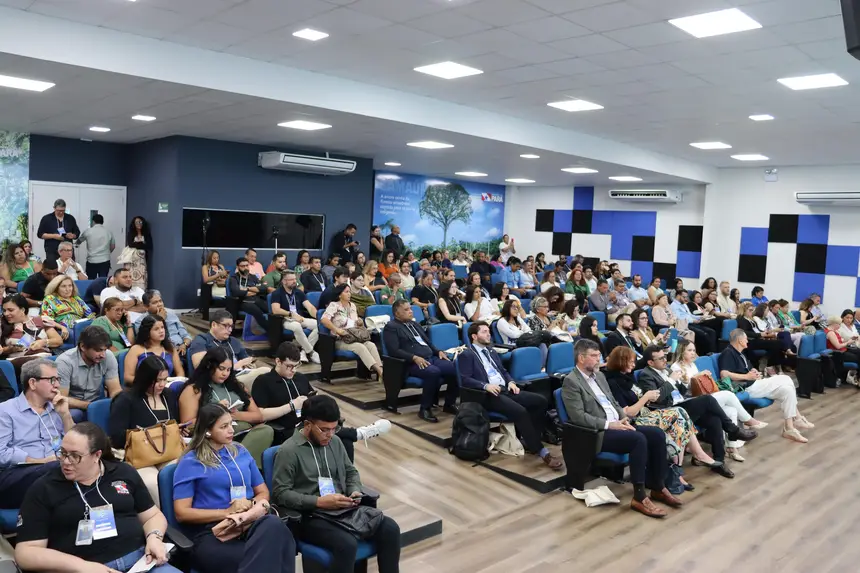
Local Initiatives - Eduardo Martinelli, a researcher at the Federal University of Pará (UFPA) in the fields of Biological Oceanography, Environmental Sciences, and Environmental Impacts, highlighted the applications of bioeconomy in the academic and scientific context. According to him, "bioeconomy is applied research with a socio-environmental purpose, with the potential to transform scientific knowledge into sustainable innovation and local and global development."
The professor presented data from research related to the distribution of microplastics along the Amazon Continental Shelf and the impacts on biodiversity with changes in the coastal region, in addition to the proposal involving bioeconomy and circularity in the reuse of biomass from the brown algae sargassum as a potential biofertilizer.
Francisco Samonek, executive director of Seringô, explained how his company, which works with extractive communities in the Marajó Archipelago, is adopting circular economy practices to transform latex into ecological rubber and bio-jewelry, generating social inclusion and encouraging forest preservation. He emphasized that no trees are cut down in this process, directly contributing to the maintenance of the standing forest.
Bruna Freitas, CEO of Yara Couro, shared her experience of transforming fish skin waste into high-value leather, highlighting the importance of these initiatives in strengthening the Amazonian bioeconomy, with emphasis on the public-private partnership proposal that is being developed with the fishing agreement policy led by Semas.
Carol Magalhães, an entrepreneur from the Green Currency Movement, reported an innovative experience in Igarapé-Açu, a municipality in northeastern Pará, where the community exchanges recyclable materials for a social currency that can be used in over 50 businesses in the city. She highlighted that the circular economy initiative in practice promotes environmental education, women's empowerment, and social inclusion, showcasing local solutions in the context of COP 30.
Program - The event began with the opening of panels on circular economy, involving synergies and challenges, as well as local and regional experiences and the ESG (Environmental, Social, and Governance) agenda in waste management. In the afternoon, dialogue groups discussed key points addressed in the panels, followed by the results of discussions made by representatives of the groups. The program concluded with a presentation on "Brazil-Germany Cooperation: instruments and projects," led by Timon Lepold, attaché of the German Embassy in Brazil, and Sarah Habersack from German Cooperation GIZ.
Partnerships - At the closing of Climate Talks 2025: COP 30 and Circular Economy – Local Contributions to Combat Climate Change, the deputy secretary of Semas and the attaché of the German Embassy highlighted that climate dialogues continue an agenda of dialogues and partnership articulation to integrate circular economy practices into local and regional climate strategies, emphasizing the cooperation possibilities that may arise from the developments and contributions presented by Pará municipalities and collectives during the event.
The need to support civil society collectives, empower communities and local managers were central points. Training and exchanges of experiences can articulate a commitment agenda in the axes of Strengthening Multisectoral Partnerships, Valuing Local Initiatives, and Education and Awareness, aiming to disseminate knowledge and strengthen economic practices.



